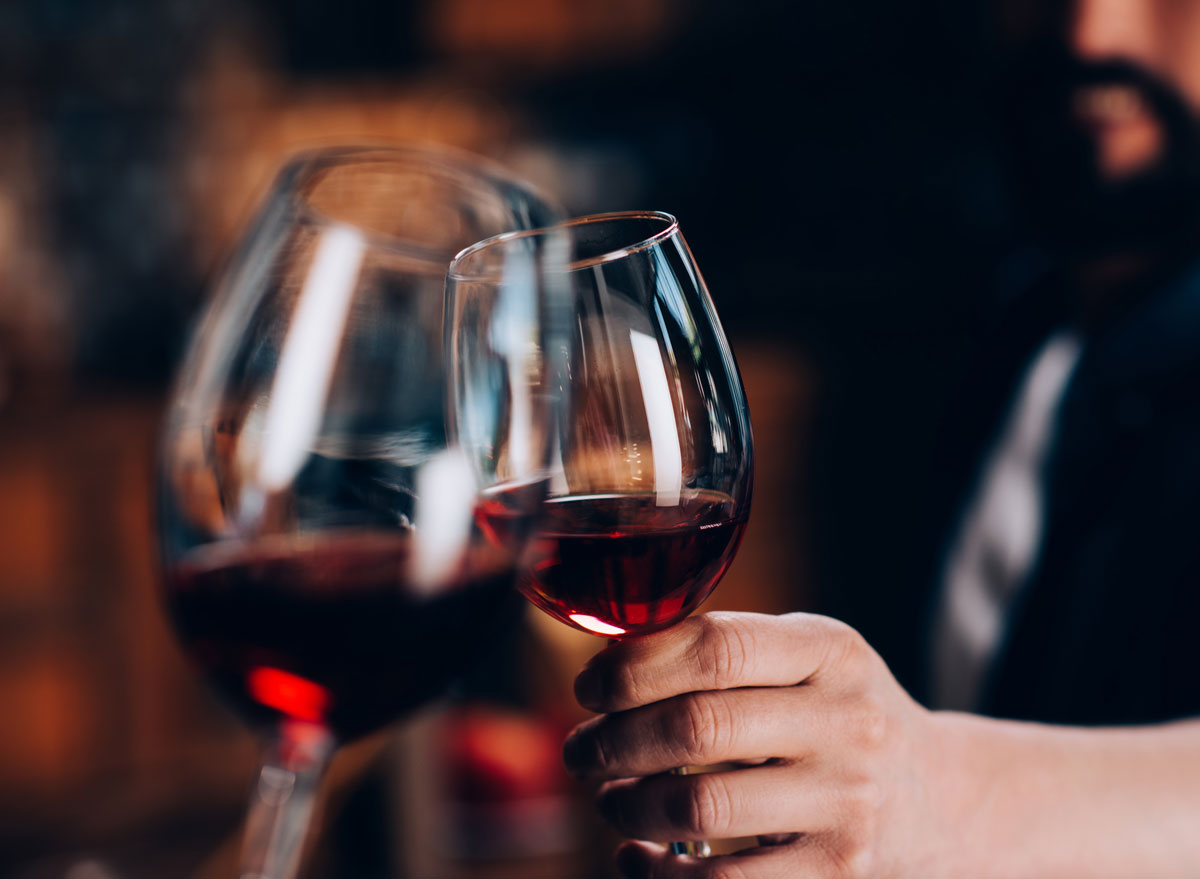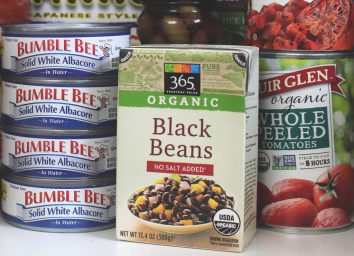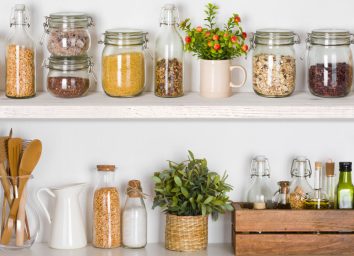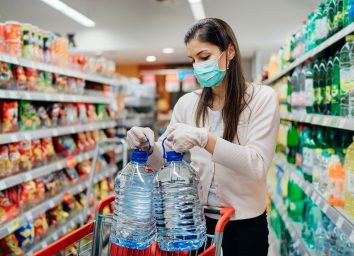Does Drinking Alcohol Put You at More Risk for Coronavirus?

One of the number one goals during the coronavirus quarantine is staying as healthy as possible. Yes, we are primarily focused on not contracting COVID-19, but since the disease is caused by a virus, and there are no known cures for viruses, our best bet is to take a holistic approach. That means trying to maximize factors that boost our immune systems, like sleep, exercise, and healthy eating, and minimize exposure to things that could bring our bodies' defenses down. One such thing is alcohol.
The vast majority of us consume alcohol on occasion, and some even regularly. If you're no stranger to unwinding with a glass of wine or a beer after a long day, you may be reaching for this mood-boosting habit even now, when you're working from home and rarely leaving your house. In fact, drinking is right up there with people's favorite quarantine activities, and #quarantini has become a trending hashtag.
We wanted to find out whether our drinking habits may be predisposing us to contracting coronavirus. Is alcohol a really bad idea right now? And how much is too much?
Can Drinking Alcohol Right Now Predispose You to Contracting Coronavirus?
It's been well-documented through research that the consumption of alcohol has the ability to lower your immune defenses, which is why we asked the experts whether drinking can compromise your immune system to the point of making you more susceptible to contracting coronavirus.
"Unfortunately, the answer is yes. When consumed in excess, alcohol can cause damage to immune cells in the lungs, upper respiratory system, and the gut. This, in turn, poses a higher risk for the chance of developing diseases like pneumonia or tuberculosis, making you more susceptible to COVID-19," says Dr. Niket Sonpal, an internist and gastroenterologist in New York City.
Giuseppe Aragona, MD, a medical advisor at Prescription Doctor, agrees that enjoying an alcoholic beverage during the pandemic should be done with caution. Especially because we're less likely to be following our regular daily schedules during quarantine, and thus are more likely to "embark on drinking at odd times of the day, more than usual, or drinking every day." He says this could develop into a health issue, "Being hungover every day or having dehydration headaches will occupy the immune system, leaving you more vulnerable to other illnesses, including the coronavirus."
But how exactly does alcohol compromise your immune response? "There are a few mechanisms in which alcohol can inhibit the immune system," says Dr. Aragona. "The biggest issue is that it can relax the gut barrier, which then allows more bacteria to pass into the blood, causing a depletion of immune cells including macrophages. Fewer macrophages in the blood cause the immune response to be less pronounced," he says.
Licensed nutritionist Amanda Kostro Miller, RD, LDN, says "Alcohol has been shown to decrease the body's ability to fight infection." She also points out that there are several indirect ways in which alcohol can dampen the immune system—by disrupting your sleep patterns, and causing mild depression as a side effect.
Does That Mean I Shouldn't Enjoy a Glass of Wine or a Cocktail at All?
Most of our experts agree that moderate alcohol consumption during quarantine will not have adverse effects on your health. "Don't be afraid to have a glass of wine or a cocktail because you will be fine," says Dr. Sonpal.
And why exactly is this a time when it seems like more and more people are, in fact, turning to some wine or a cocktail nightly?
"It is really easy to turn to alcohol during times of uncertainty because our brains really don't like it, " says Dr. Jud Brewer, M.D., Ph.D. neuroscientist, addiction psychiatrist and director of research and innovation at the Mindfulness Center at Brown University and an associate professor of behavioral and social sciences in the Brown University School of Public Health. "Our planning brain needs accurate information and will make us feel this itch of anxiety that we need to scratch, urging us to do something to get that information. Yet when information isn't available, we turn to drinking to make that itch go away, or at least to temporarily numb ourselves from it."
However, it is important to limit your drinking to no more than one drink a day for women, and two for men, according to CDC's guidelines for moderate drinking. This is especially true if you have a tendency (or currently gravitate) to drinking every day. Dr. Sonpal warns against consuming more than the recommended CDC amounts, "If you have a lot more than two drinks daily, you aren't doing yourself any favors. Not only is it harmful to your body in many ways, but it also affects your mental health."
Kostro Miller recommends being mindful of serving sizes when counting your daily drink allowances. "One serving of wine is 5 ounces, so the nutrition information is based on that amount. However, many people consume far more than 5 ounces in one glass, whether at home or at a restaurant."
The same goes for beer and spirits. One standard serving of beer is 12 ounces, so a pint of beer counts as more than one serving (and therefore more than one drink). A serving of spirits is 1.5 ounces, so be aware of your pour when making cocktails at home.
Is There Anything You Can do to Stay Healthy While Enjoying an Occasional Drink?
You can stick to red wine, for one. Our experts are in agreement that if they had to recommend one alcoholic beverage, it would be red wine, because of its well-documented health benefits. "Red wine is high resveratrol, a compound some plants produce to fight off bacteria and fungi and to protect against UV irradiation," says Dr. Sonpal.
Staying away from drinks high in sugar, like certain cocktails, may also be a wise decision during quarantine. "In general, we think that sugar may reduce the performance of your immune system. There is some early evidence that blood sugar levels may be correlated with the severity of COVID-19 infection. Limiting sugar intake across the board right now would be a wise choice and that's true when it comes to mixed drinks as well," says Dr. Nate Favini, the medical lead of Forward, the preventive primary care practice.








